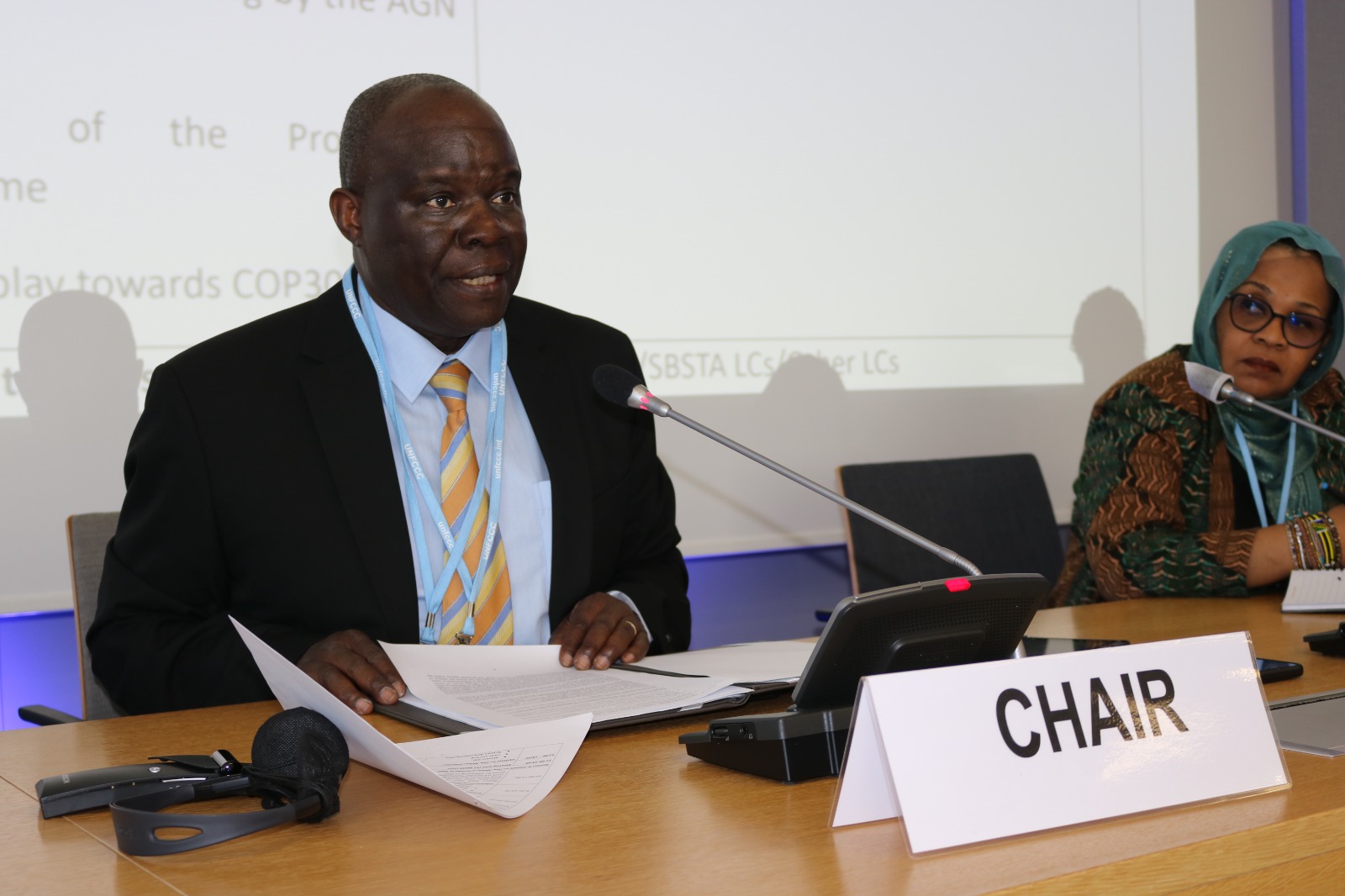Climate Change: AGN Chair emphasises importance of Africa’s unity in global negotiations – Nsemkeka
Chair of the African Group of Negotiators on Climate Change (AGN), Dr. Richard Muyungi, has emphasised the importance and power of Africa’s unity in global negotiations.
Speaking at the opening of the AGN Preparatory Plenary Meeting ahead of the 62nd session of the UN Climate Change Subsidiary Bodies (SB62) in Bonn, Germany, Dr. Muyungi said power was a crucial element of climate negotiations.
“Florian Weiler lists three factors that determine power in UNFCCC negotiations: the size of a country’s economy, its international prestige, and levels of national greenhouse gas (GHG) emission intensity,” he said.
“When compared to the continent, individual AGN member states score very low on all these factors. Therefore, the AGN concept seeks to overcome this constraint through; providing a coordinated African response; reducing the likelihood of contradictory and competing bargaining positions; and discouraging incentives being offered to individual African states by external powers, which could undermine unity and cohesion. It is thus important that we continue leveraging on this power of unity as Africa.”
Dr. Muyungi further noted that through power of unity, AGN has been instrumental in representation and coordination by speaking with one voice, allowing the continent to exert more influence in the negotiation process.
“Over the years, the AGN has been pivotal in addressing Africa’s vulnerability and highlighting the importance of climate finance, adaptation, capacity building and overall climate action, by balancing individual country priorities on the one hand and demonstrating cohesion as a negotiating group on the other,” he added.
As a technical arm reporting to the African Ministerial Conference on the Environment (AMCEN) and ultimately to the Committee of African Heads of state on Climate Change (CAHOSCC), the AGN remains a key instrument for Africa’s participation in climate negotiations and other related processes.
Dr. Muyungi explained “the second key pillar of the AGN position in the UNFCCC negotiations is the location of adaptation as the principal regional response to climate change. In fact, in the context of the impacts of drought, desertification, floods, and the need for adaptation, Africa was, at one stage, the only region that was explicitly referred to in the UNFCCC documents. The consistency of the AGN in advancing this position has undoubtably contributed to the prominence of adaptation in UNFCCC negotiations.
“This prominence of adaptation is reflected by (1) direct linkages that now exist between climate finance and adaptation, including recognition of the need for equal division of climate finance for adaptation and for mitigation; (2) the implications for adaptation responses owing to the failure in achieving the global mitigation goal, (3) the link between the global temperature goal and adaptation, (4) a shift in the framing of adaptation from a local issue to a global responsibility, (5) the inclusion of the adaptation component in the nationally determined contributions (NDCs) by almost all developing countries, (6) the establishment of the global goal on adaptation by the Paris Agreement; and (7) the inclusion of adaptation in the global stock take of the Paris Agreement”.
Priorities at SB62 session
At the Bonn Climate Talks, the group has prioritized Adaptation, Finance, Just Transition, Mitigation, Clean Cooking and Mission 300.
Clean cooking and energy access are two important initiatives aimed at addressing Africa’s energy poverty and overall contribution to the continent’s sustainable development agenda.
“Africa’s energy poverty is well documented; it is for this reason that our leaders under the auspices of the African Union, endorsed and declared Mission 300 and Clean Cooking initiatives as flagship programmes to transform the continent from its current state of energy poverty. We need to find a way of ensuring this agenda is embraced by all of us.
“As we are aware, our energy poverty impacts several social-economic sectors such as health, agriculture, manufacturing, and even adaptation to climate change impacts. We must therefore not shy away from highlighting and embedding into negotiations, key initiatives that we are undertaking as a continent for sustainable development and in support of global climate action,” highlighted Dr. Muyungi.
Mission 300 is a joint initiative by the World Bank Group and the African Development Bank Group to connect 300 million Africans to electricity by 2030, while the Clean Cooking Project aims to transform the clean cooking sector by enhancing private sector participation and increasing access to affordable clean cooking solutions, particularly in underserved areas.
The two initiatives, spearheaded by the President of the United Republic of Tanzania, Samia Suluhu Hassan, were in February, 2025, endorsed and declared as African union flagship programmes on clean energy access.
“At our Strategic meeting in Zanzibar in April, we resolved to ensure these two important initiatives are embedded in the Just transition and Mitigation work programmes, as guided by our Heads of State guidance in February,” added the AGN Chair.
Additional priority areas
- Finalizing Africa’s approach towards the new round of Nationally Determined Contributions (NDCs 3.0), ensuring they are ambitious, equitable, and supported by adequate means of implementation;
- Securing clarity and operationalization of the New Collective Quantified Goal on climate finance, building upon AU and CAHOSCC relevant guiding decisions and the “Baku to Belém Roadmap to 1.3 trillion USD by 2035”;
- Ensuring decisive progress on adaptation, including the adoption of robust indicators under the Global Goal on Adaptation, and tangible progress on National Adaptation Plans;
- Defending Africa’s equity-centered positions in the evolving global climate governance, particularly in loss and damage, technology transfer, just transition work programmes, and transparency frameworks; and
- Reaffirming that Africa’s natural wealth presents a transformative opportunity to drive global climate change mitigation while catalysing inclusive, sustainable economic growth across the continent, with particular attention to how Africa’s natural wealth could enable Africa to leapfrog into a low-carbon future while contributing meaningfully to global emissions reductions.

